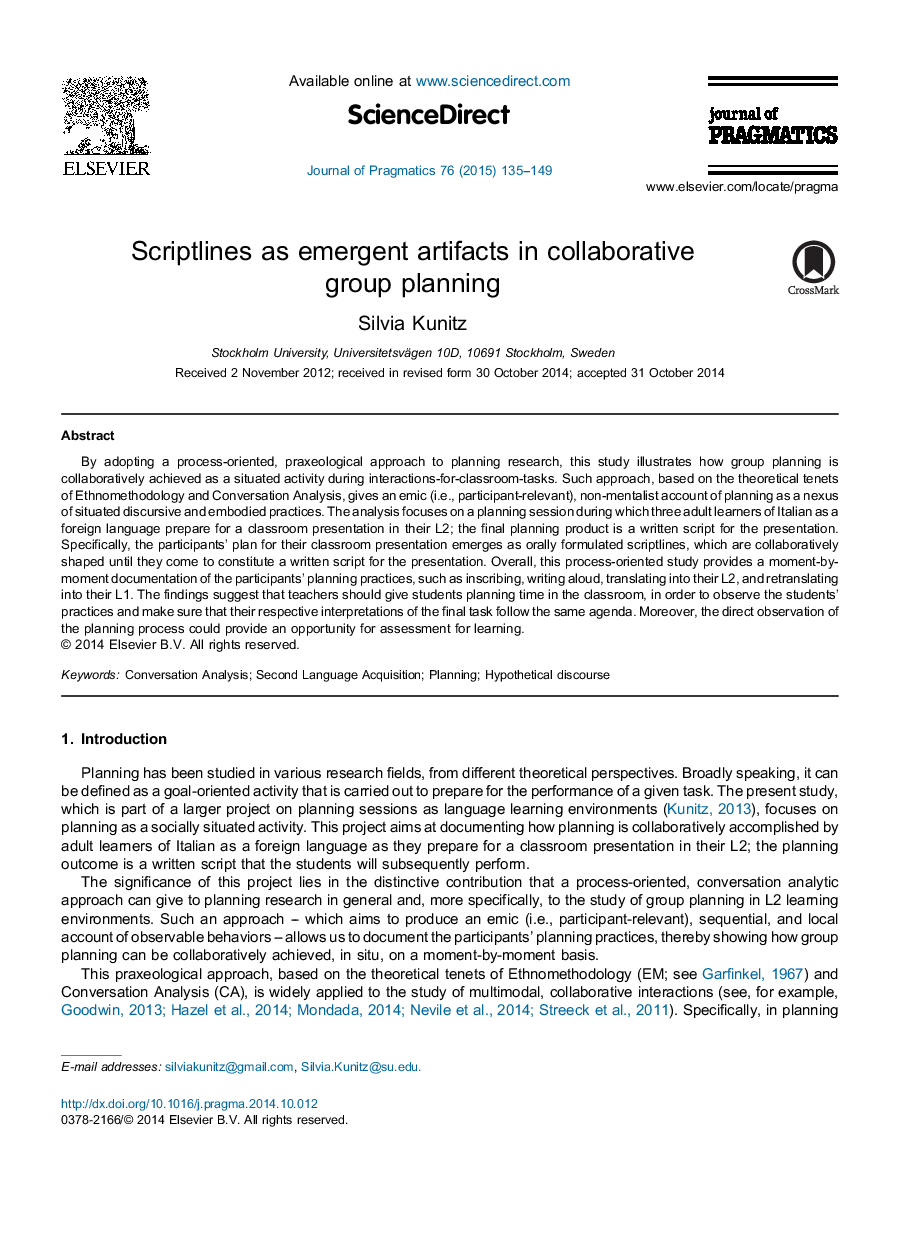| Article ID | Journal | Published Year | Pages | File Type |
|---|---|---|---|---|
| 932651 | Journal of Pragmatics | 2015 | 15 Pages |
•Conversation-analytic approach to the study of planning.•Goal: documenting students’ observable practices and emic criteria.•Participants: three students of Italian as a foreign language.•Collaborative shaping of a written script for a presentation in Italian.•Hypothetical discourse (i.e., scriptlines) to model and illustrate the plan.
By adopting a process-oriented, praxeological approach to planning research, this study illustrates how group planning is collaboratively achieved as a situated activity during interactions-for-classroom-tasks. Such approach, based on the theoretical tenets of Ethnomethodology and Conversation Analysis, gives an emic (i.e., participant-relevant), non-mentalist account of planning as a nexus of situated discursive and embodied practices. The analysis focuses on a planning session during which three adult learners of Italian as a foreign language prepare for a classroom presentation in their L2; the final planning product is a written script for the presentation. Specifically, the participants’ plan for their classroom presentation emerges as orally formulated scriptlines, which are collaboratively shaped until they come to constitute a written script for the presentation. Overall, this process-oriented study provides a moment-by-moment documentation of the participants’ planning practices, such as inscribing, writing aloud, translating into their L2, and retranslating into their L1. The findings suggest that teachers should give students planning time in the classroom, in order to observe the students’ practices and make sure that their respective interpretations of the final task follow the same agenda. Moreover, the direct observation of the planning process could provide an opportunity for assessment for learning.
